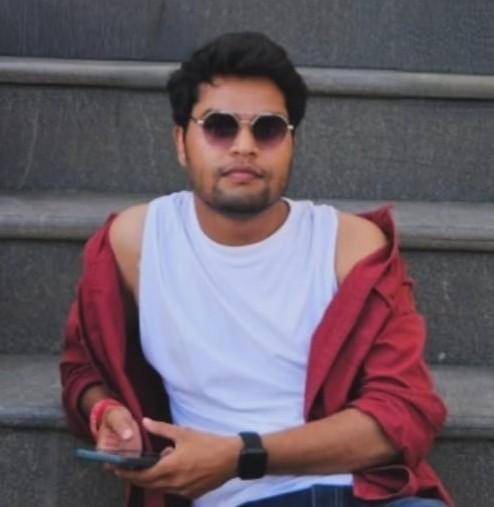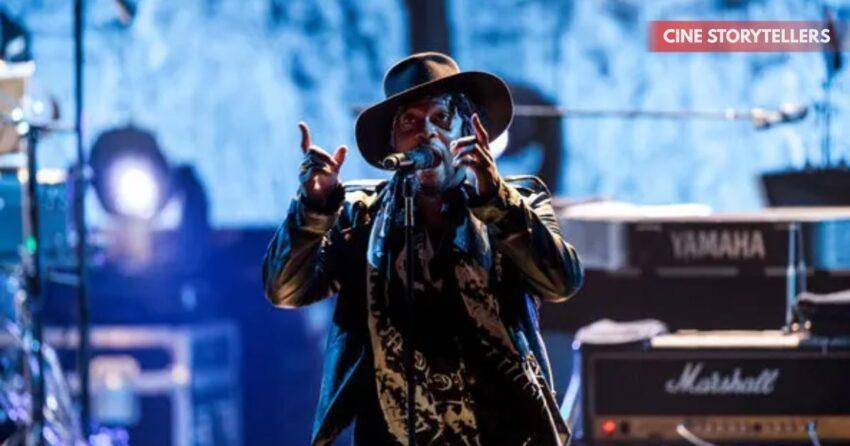The music world is mourning the loss of D’Angelo, one of the most influential and visionary figures in R&B and soul music. The Grammy-winning artist, whose real name was Michael D’Angelo Archer, passed away at the age of 51 after a prolonged battle with cancer. His family confirmed the heartbreaking news through an official statement expressing gratitude for his enduring musical legacy and the light he brought into the world.
D’Angelo’s death marks the end of an era for neo-soul, a genre he helped define and popularize with groundbreaking albums such as Brown Sugar (1995), Voodoo (2000), and Black Messiah (2014). His powerful voice, deep lyricism, and fearless artistry reshaped the sound of R&B for generations.
Early Life and Musical Beginnings
Born on February 11, 1974, in Richmond, Virginia, D’Angelo grew up surrounded by gospel and soul influences. His father was a Pentecostal minister, and church music was his earliest introduction to rhythm and emotion. From a young age, D’Angelo displayed exceptional musical talent—writing, singing, and mastering instruments like the piano and guitar.
By his teenage years, he had already earned attention for his soulful performances and songwriting abilities. His big break came when he signed with EMI Records, leading to the release of his debut album Brown Sugar, which instantly positioned him as one of R&B’s most refreshing new voices.
Breakthrough with Brown Sugar
Released in 1995, Brown Sugar was both a critical and commercial success. Songs like “Lady,” “Cruisin’,” and the title track showcased D’Angelo’s smooth vocals and his ability to blend funk, jazz, soul, and hip-hop elements effortlessly.
The album is often credited with launching the neo-soul movement, inspiring artists like Erykah Badu, Maxwell, and Lauryn Hill to bring authenticity and emotional depth back into R&B during the mid-1990s.
Brown Sugar sold over two million copies in the U.S. alone and earned D’Angelo two Grammy nominations, cementing his reputation as a visionary artist.
The Masterpiece: Voodoo and Cultural Impact
In 2000, D’Angelo released his second studio album, Voodoo, a project that pushed the boundaries of R&B. The album’s layered instrumentation, live rhythm sections, and experimental production—led by The Soulquarians collective—set a new standard for modern soul music.
The single “Untitled (How Does It Feel)” became a cultural moment. Its minimalist music video, featuring a nearly nude D’Angelo singing directly to the camera, sparked global attention and remains one of the most iconic visuals in music history.
Voodoo won two Grammy Awards, including Best R&B Album and Best Male R&B Vocal Performance. Yet despite the success, D’Angelo retreated from the spotlight soon after, struggling with fame and personal challenges.
Years of Silence and Triumphant Return with Black Messiah
After years of absence and speculation about his wellbeing, D’Angelo returned in 2014 with Black Messiah, a politically charged and musically rich album that arrived amid social unrest and racial tensions in the U.S.
The album, credited to D’Angelo and The Vanguard, combined funk, gospel, and rock elements to address themes of justice, love, and resilience. Tracks like “The Charade,” “Sugah Daddy,” and “Betray My Heart” were hailed as both artistic and social statements.
Black Messiah received universal acclaim, winning Best R&B Album at the 2016 Grammys and reaffirming D’Angelo’s genius as a performer and composer.
D’Angelo’s Musical Legacy and Influence
Few artists have shaped the landscape of modern soul the way D’Angelo did. His music bridged generations—drawing from the emotional core of Marvin Gaye, the raw funk of Prince, and the smooth groove of Curtis Mayfield, while crafting something entirely his own.
Beyond his albums, D’Angelo’s sound influenced countless contemporary musicians, from Frank Ocean and Anderson .Paak to H.E.R., Daniel Caesar, and Leon Bridges. His focus on live instrumentation, authenticity, and vulnerability continues to define the best of today’s R&B.
In addition to his studio work, D’Angelo’s live performances were legendary. His concerts, often infused with extended jams and soulful improvisations, showcased not only his vocal prowess but also his deep connection with his audience.
Tributes from the Music World
Following the news of his passing, tributes have poured in from across the globe. Artists such as Questlove, Erykah Badu, Alicia Keys, and John Legend have shared heartfelt messages remembering D’Angelo’s contributions to music and culture.
Questlove, his longtime collaborator and friend, wrote:
“There was music before D’Angelo and there will be music after him, but there will never be another like him. He redefined what soul means.”
Fans have also taken to social media to share memories of how D’Angelo’s songs soundtracked their lives—moments of love, heartbreak, and self-discovery.
Personal Life and Final Years
While D’Angelo was famously private, those close to him described him as deeply spiritual, humble, and introspective. In his later years, he focused on his health, family, and spirituality, continuing to create music privately even as he stepped away from the public eye.
In one of his last interviews, D’Angelo reflected on his career:
“Music is how I talk to God. It’s how I understand the world.”
His family’s statement following his death emphasized his courage during his battle with cancer and their appreciation for the love shown by fans worldwide.
Remembering D’Angelo’s Timeless Influence
D’Angelo’s artistry cannot be measured by awards or chart success alone. His music touched hearts, inspired movements, and gave soul music a new voice in the modern era. His fearless creativity, emotional vulnerability, and devotion to his craft will continue to inspire generations to come.
Though he may no longer be with us, his songs—Brown Sugar, Untitled, Really Love, and The Charade—will echo through time, reminding the world of what it means to feel deeply and love honestly.
Also Read : Wake Up Dead Man: A Knives Out Mystery- Everything to Know About the Third Benoit Blanc Movie
FAQs
1. How old was D’Angelo when he passed away?
D’Angelo was 51 years old at the time of his passing.
2. What was the cause of D’Angelo’s death?
According to his family, he passed away after a long and courageous battle with cancer.
3. What are D’Angelo’s most famous songs?
Some of his most popular tracks include Brown Sugar, Lady, Untitled (How Does It Feel), Really Love, and The Charade.
4. What is D’Angelo’s real name?
His real name was Michael D’Angelo Archer.
5. When was D’Angelo’s last album released?
His final studio album, Black Messiah, was released in 2014 under D’Angelo and The Vanguard.
6. How did D’Angelo influence R&B music?
D’Angelo was a pioneer of the neo-soul movement, blending classic soul with contemporary sounds, and influencing a new generation of artists through his authenticity and musical depth.
Join our WhatsApp channel for more updates and information about celebrities and entertainment

I’m Atul Kumar, founder of Cine Storytellers and an entertainment creator with 5+ years of experience. I cover films, celebrities, music, and OTT content with a focus on accurate, ethical, and engaging storytelling. My goal is to bring readers trustworthy entertainment news that informs, inspires, and goes beyond gossip.
Discover more from Cine Storytellers
Subscribe to get the latest posts sent to your email.
